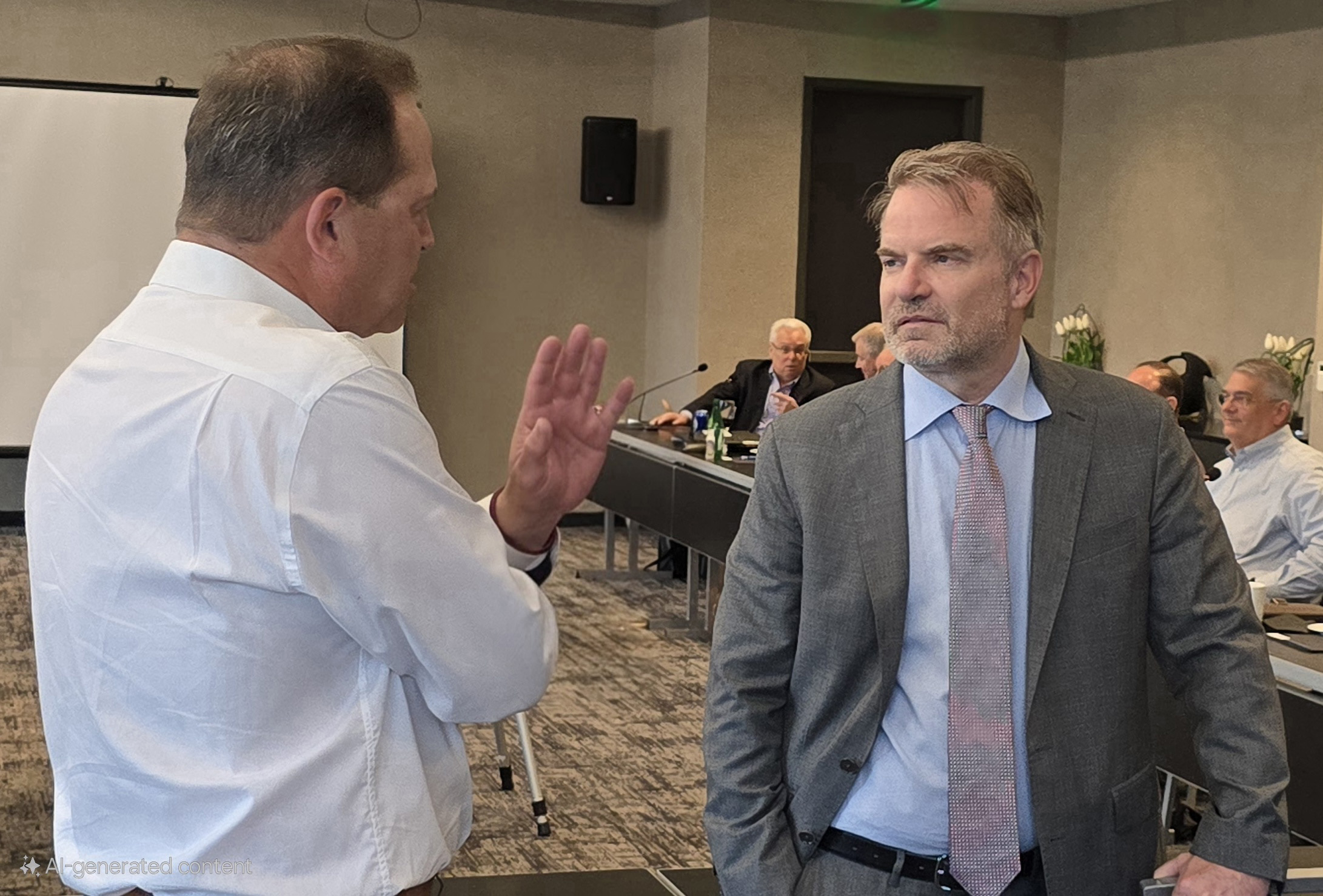 FMC Chair Louis Sola (right) gets the U.S. rice industry point of view from ACC CEO Chris Crutchfield
FMC Chair Louis Sola (right) gets the U.S. rice industry point of view from ACC CEO Chris Crutchfield
May 15, 2025
WASHINGTON, DC – The afternoon session of this week’s USA Rice Trade Fly-in sparked excellent conversation and policy analysis and debate from attendees and distinguished guests.
Staff from the U.S. Department of State’s Iraq desk and the U.S. Department of Agriculture (USDA) staff responsible for Iraq shared the U.S. government’s view towards the U.S.-Iraq relationship, in which normal and growing trade and U.S. rice play a major role today and going forward.
Iraq’s purchases of U.S. rice have been strong and will likely continue, however, State Department staff cautioned that “Iraq is having elections later this year and it sometimes takes quite a while for a coalition government to form. Last time, it took about one year, and during that time communication can slow.”
USA Rice members thanked the teams for their advocacy and expressed a desire to see the issue of financial restrictions on Iraqi importers to be resolved by the Trump Administration.
Attention then turned to shipping with the Federal Maritime Commission Chairman Louis Sola explaining to the group the challenges his agency is facing, including shipper penalties, port fees, and the relative cost of construction for both U.S. flagged vessels, and the specialized cranes required at ports to load and unload vessels.
Sola praised the work being done in Louisiana to construct the new Louisiana International Terminal in St. Bernard Parish that is expected to come online in 2028, be capable of accepting larger ships, and will begin receiving more than 180,000 containers annually, on the way to moving 1.2 million containers annually around 2050.
Bobby Hanks, chair of the USA Rice International Trade Policy Committee, then led a panel discussion on the state of U.S. trade with industry heavyweights Sharon Bomer Lauritsen, Ben Conner, and the USDA Foreign Agricultural Service Acting Associate Administrator Jason Hafemeister. The panel contemplated the use of U.S. domestic policy and the role of the World Trade Organization (WTO) to finally hold India to account for its egregious subsidies for rice production. Bomer Lauritsen and Conner lead a coalition of agricultural organizations that support the role of the WTO and urged USA Rice to continue advocating to Congress to vote in favor of continued membership later this year.
The group then heard from Kent Bacus, executive director of government affairs for the National Cattlemen's Beef Association (NCBA). Bacus shared the NCBA trade priorities and the group discussed possible wins for both industries in the coming months as the Administration negotiates new trade deals with key trading partners.
Finally, Mayur Patel, chief international trade counsel for the Senate Finance Committee, had a frank conversation with the group about the trade priorities of the committee and Chair Mike Crapo (R-ID), and opportunities for enforcement actions Congress could work on with the industry and the Trump Administration.
“This long day of discussion and analysis was extremely important for us,” said Hanks. “We’re coming from all states and sectors, but we’re all invested in the same outcome: the U.S. rice industry succeeding. Hearing disparate views and getting into the minds of our nation’s policymakers is invaluable as we advocate for our long-term sustainability and global competitiveness this week and beyond. I appreciate all the guest speakers who joined us, and our members who made the trip to participate.”